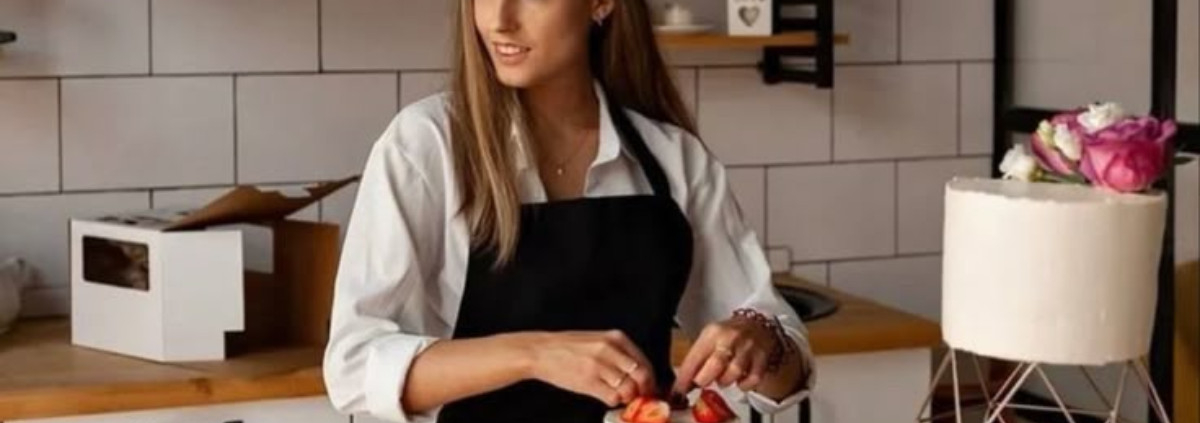What to Expect in Your First Baking Class: A Beginner’s Guide
Stepping into your first baking class can be both exciting and a little nerve-wracking, especially if you’re new to the kitchen. Whether you’re joining for fun, self-improvement, or as the first step toward a career, understanding what to expect can help ease your nerves and set you up for a rewarding experience.
Baking is a unique blend of science, creativity, and patience. Unlike cooking, it relies heavily on precision, which makes learning from an experienced instructor incredibly valuable. Here’s a comprehensive guide to help you navigate your first baking class with confidence and excitement.
A Warm Welcome and Orientation
Most baking classes begin with a friendly orientation. You’ll meet your instructor and fellow students, many of whom might be beginners just like you. This session usually covers the class format, safety guidelines, kitchen etiquette, and a tour of the facility.
You may be introduced to the equipment and ingredients that you’ll be using, along with a brief overview of the recipe or baking technique you’ll be learning that day. It’s also a chance to ask any initial questions and get a feel for the learning environment.
Learning the Basics of Baking
Expect to start with the fundamentals. The first few sessions often cover key concepts like measuring ingredients accurately, understanding oven temperatures, the role of baking powder and baking soda, and how different flours affect texture.
You’ll likely practice basic techniques such as mixing, folding, kneading, and whisking. These foundational skills are essential no matter what type of baked goods you plan to make in the future.
Hands-On Practice
One of the highlights of any baking class is the hands-on experience. After a short demonstration from the instructor, you’ll get to replicate the steps on your own. This practical component is where real learning happens. Mistakes are part of the process, and instructors are there to guide and correct you in a supportive way.
Don’t worry if your dough is sticky or your cupcakes don’t rise perfectly the first time. What matters most is understanding the “why” behind each step and building confidence through repetition.
Teamwork and Collaboration
In many classes, students work in pairs or small groups. This encourages collaboration and makes the experience more interactive. You’ll share tools, divide tasks, and learn from observing others. It’s also a great way to build friendships with people who share your interest in baking.
Tips, Tricks, and Professional Insights
Instructors often share tips that you won’t find in cookbooks or online videos. These might include shortcuts for efficiency, techniques for perfect textures, or even industry secrets that elevate your baking game.
You’ll also learn how to troubleshoot common problems—like why a cake sinks in the middle or why cookies turn out too hard. These insights are incredibly useful for improving your skills over time.
Understanding Ingredient Functionality
A good baking class doesn’t just teach recipes—it helps you understand ingredients on a deeper level. You’ll explore how eggs provide structure, how sugar affects moisture and browning, and why fats like butter or oil impact flavor and texture.
This knowledge empowers you to experiment and adapt recipes based on what you have at home or dietary preferences. It also helps you become a more intuitive and confident baker.
Clean-Up and Organization
A key part of baking is learning to stay organized and clean. Expect to spend some time cleaning your workstation, washing tools, and resetting the area for the next activity. While it may seem tedious, good kitchen hygiene and time management are essential habits for any baker.
Tasting and Feedback
The best part of any baking class? Tasting your creations! After all the hard work, you’ll get to sample what you’ve made and possibly share with others. Instructors may offer constructive feedback, highlighting what you did well and what could be improved.
Some classes even include a short discussion or critique session where students can learn from each other’s results. This shared feedback loop enhances the learning experience.
What to Bring and Wear
Most baking classes provide all the necessary ingredients and equipment, but it’s a good idea to check in advance. Typically, you’ll be asked to wear closed-toe shoes, an apron, and have your hair tied back for safety and hygiene.
You might also want to bring a notebook to jot down important tips or variations on recipes. Some classes allow you to take home your baked goods, so consider bringing a container just in case.
Choosing the Right Class for You
When selecting your first baking class, consider your goals. Are you baking for fun, health reasons, or with an eye toward starting a business? Make sure the class fits your level and objectives. Some classes are single-session workshops, while others run over several weeks for deeper learning.
For those located in Tamil Nadu, baking classes in chennai offer a wide range of beginner to advanced-level programs that cover everything from cupcakes and cookies to artisan breads and specialty cakes. These classes are ideal for anyone looking to build a strong foundation while exploring the latest trends in baking.
Final Thoughts
Your first baking class is the beginning of a delicious journey. It’s a chance to discover new skills, spark creativity, and find joy in the process of making something from scratch. With the right mindset and a willingness to learn, you’ll walk away not just with a tray of baked treats, but with knowledge and confidence that will inspire your future baking adventures.


Leave a Reply
Want to join the discussion?Feel free to contribute!